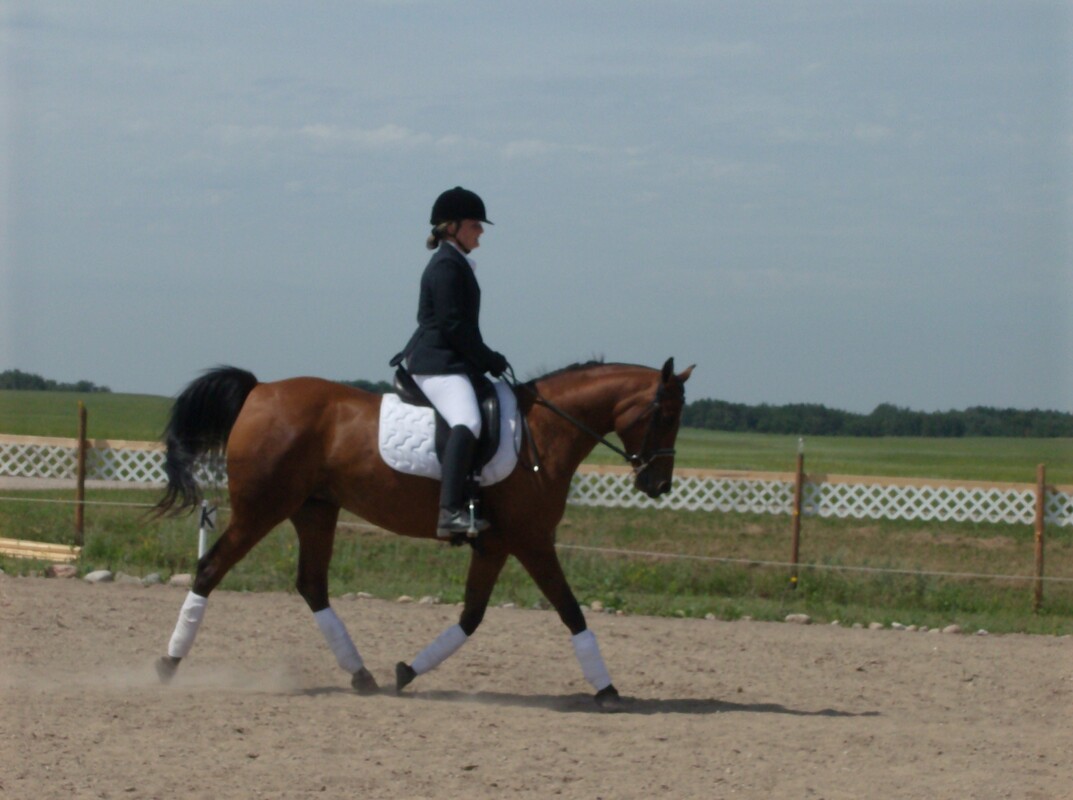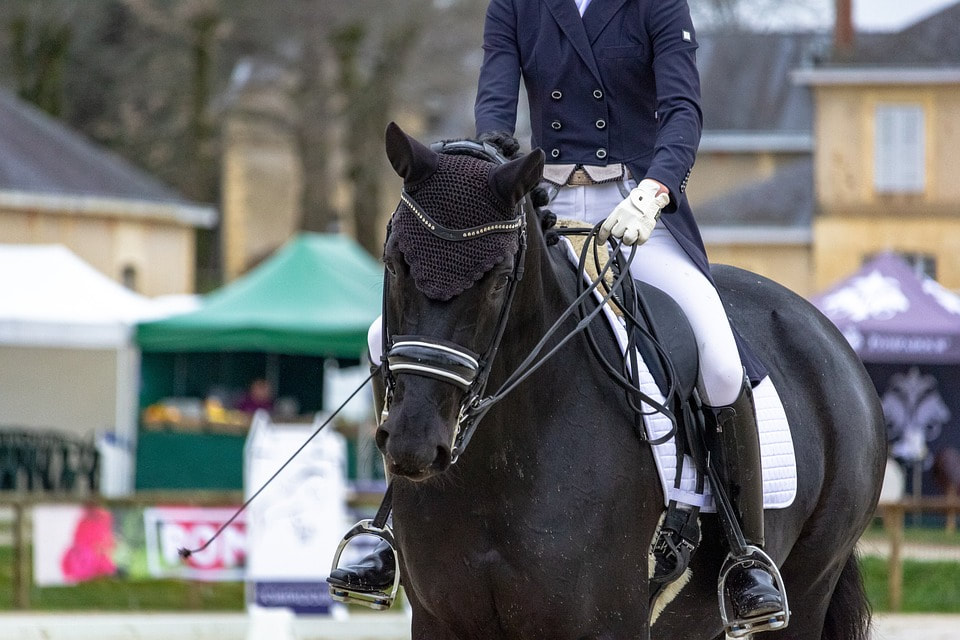When is it time to move up a level?
When the horse is happily moving forward and able to work through the tests with excellent scores, it may be time to consider moving up a level. The general rule of thumb is that a horse and rider who score in the sixty percent range may consider moving up a level. Any lower than that means that there is still work to do and movements to master.
A horse and rider can work on the next level without a doubt, but for competition purposes the horse and rider should show at the level that they are most comfortable and confident in that it can be shown off.
In order to do things correctly you will need a riding instructor to guide and instruct you. A great instructor should be able to make you a better rider than him or herself. The use of a video camera to record you is beneficial so you can replay your rides over and over to break them down further to study what happened and why. Riding in front of large mirrors will show you what exactly you are doing and when. Timing is everything. Most importantly, you will have to learn to ride by feel. Having a gifted touch comes to only the talented riders and the rest have to learn to develop the sense of feeling of what good riding and training is all about. That will take you back to needing a riding instructor again. Even instructors have instructors
A horse and rider can work on the next level without a doubt, but for competition purposes the horse and rider should show at the level that they are most comfortable and confident in that it can be shown off.
In order to do things correctly you will need a riding instructor to guide and instruct you. A great instructor should be able to make you a better rider than him or herself. The use of a video camera to record you is beneficial so you can replay your rides over and over to break them down further to study what happened and why. Riding in front of large mirrors will show you what exactly you are doing and when. Timing is everything. Most importantly, you will have to learn to ride by feel. Having a gifted touch comes to only the talented riders and the rest have to learn to develop the sense of feeling of what good riding and training is all about. That will take you back to needing a riding instructor again. Even instructors have instructors
When things go wrong, the first thing you need to do is analyze the situation, what happened and why it happened. Perhaps the horse needs to go back to simpler exercises and start again. Moving on to more difficult maneuvers is quite tasking on horses and negative behavior may arise because of it. Perhaps when performing a troubled spot, switch directions and try again. A different view point may be just what the instructor ordered. If it does not work, you can always try again tomorrow. Sometimes having a day off or taking a time out will help both the horse and the rider to learn and focus properly. The bottom line is to always seek help if you cannot achieve what you are aiming for. Make sure that your instructor is qualified to teach you what you want to learn. The riding instructor does not need to be certified by such and such an organization but he or she does not to be able to connect with you and relay proper information. Sometimes a coach can be found in the oddest of places. For example, a great coaching session can come from a dressage steward and not necessarily the coach III. It is all about communication and understanding. There are many clashes compared to how many clicks that there are amongst horse and rider as well as rider and coach. Find someone who you trust and can learn from. Also, make sure that you are progressing in your riding and understanding. A coach who makes your riding regress is not a coach at all. The coach should have no incentive to compete against or overpower any of their students. Instead a coach should strive to make his or her riders higher than ever before even if that means riding higher than the coach himself! But most importantly, make sure that your horse is happy, healthy and pain-free. There is nothing worse than forcing your horse to work just because some super qualified coach is instructing you to do so, even when you know it is wrong for you and your horse. Be a thinking rider and try to see the world from your horses view point. There is less chance of injury if you have a sympathetic understanding with your horse and the same can be said for the riding instructor. Nothing good ever comes out of force.
There is no need to rush because the more time spent on the basics means the foundation will be strong. Dressage is the stuff of which legends are born.
There is no need to rush because the more time spent on the basics means the foundation will be strong. Dressage is the stuff of which legends are born.






